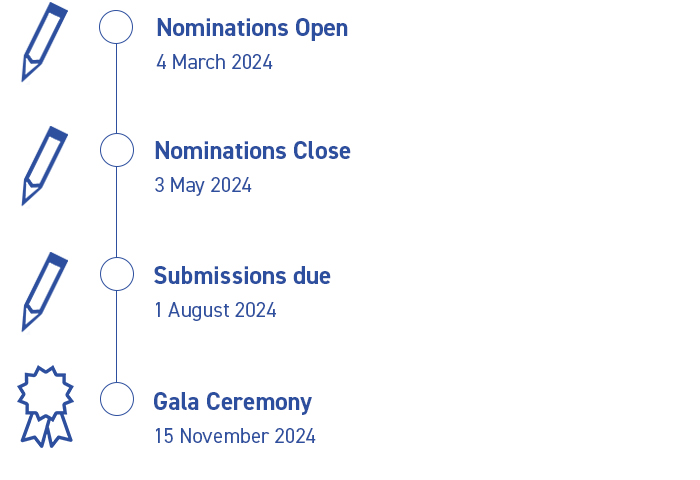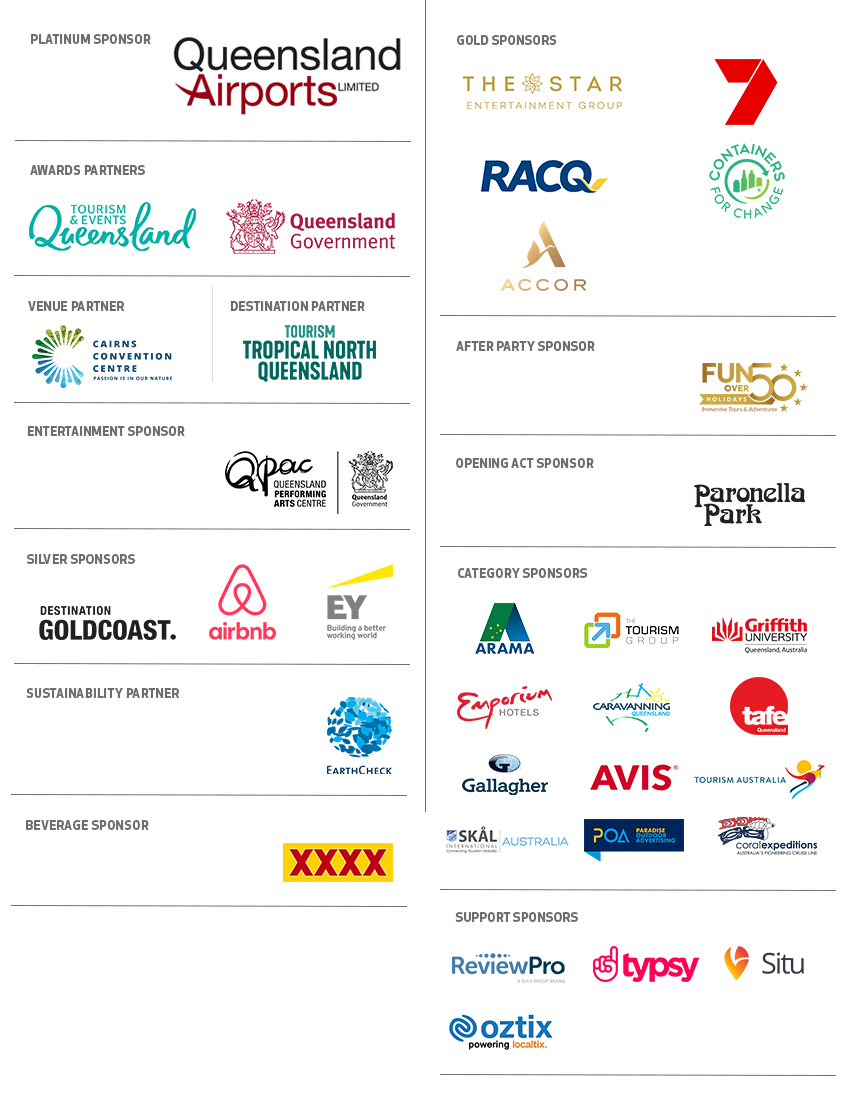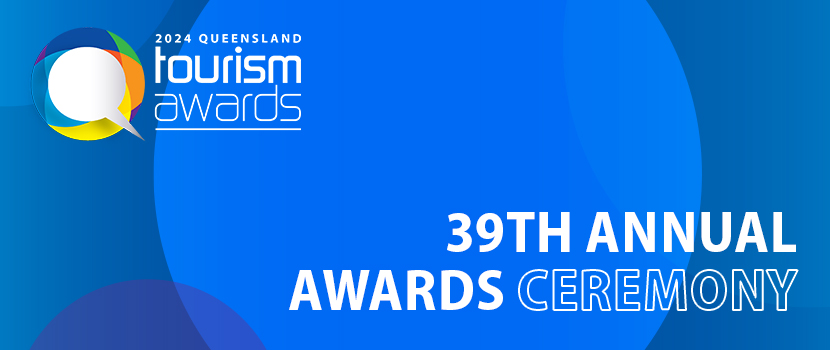The Queensland Tourism Awards
Operating for 39 years, the Queensland Tourism Awards recognise the outstanding achievements of the state's tourism industry, including individuals, businesses, and events.
The Awards are a submission and inspection-based program and provide the opportunity to publicly acknowledge and showcase Queensland's finest tourism operators.
Winners of the Queensland Tourism Awards are announced at a Gala Ceremony, the most prestigious event on the Queensland tourism calendar. Following the Awards, select category winners progress to the Qantas Australian Tourism Awards to be judged against finalists from each State and Territory.
Entrant Guidebook
Discover everything you need to know about entering the Awards and creating a winning submission in the Entrant Guidebook.

For a copy of our Top Ten Tips or Response Guides for your nominated category, please reach out to awards@qtic.com.au
2024 Key dates

How to enter - easy steps video
Contact
If you have any questions about the Queensland Tourism Awards or Top Tourism Town Awards please email Awards@qtic.com.au or call the team on 3236 1445.
Sponsors
The Queensland Tourism Industry Council would like to thank and acknowledge the Queensland Tourism Awards Partners and Sponsors.







